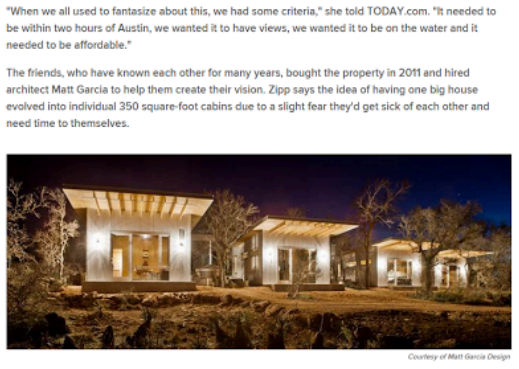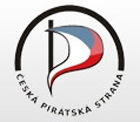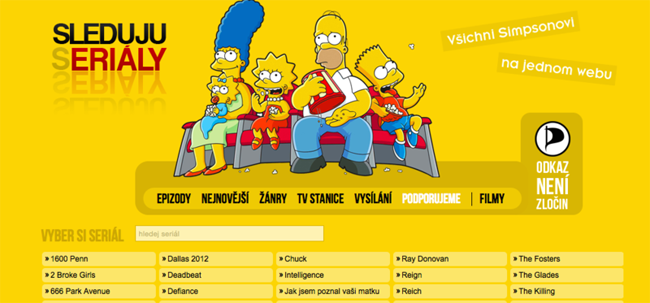
A new app will help Iowa Caucus-goers navigate the hairy caucus process.
The post Clinton Camp Gives the Iowa Caucus a Silicon Valley Upgrade appeared first on WIRED.
Unrelated to the whiskey.

A new app will help Iowa Caucus-goers navigate the hairy caucus process.
The post Clinton Camp Gives the Iowa Caucus a Silicon Valley Upgrade appeared first on WIRED.

Bernie Sanders may be an unusual—and unintentional—pop culture icon, but in a rally before the Iowa Caucus, the senator was the biggest rock star of all.
The post Saturday Night With Bernie, Politician Turned Internet Icon appeared first on WIRED.
 Copyright is a double-edged sword, and those who sharpen one side often get cut by the other.
Copyright is a double-edged sword, and those who sharpen one side often get cut by the other.
In recent years NBC Universal has fiercely protected its copyrights. The company warned file-sharers of criminal prosecutions, pursued The Pirate Bay in court, and even tried to censor TorrentFreak with an inaccurate takedown notice.
This week, however, the company is on the receiving end of a copyright dispute. Photographer Alexander Stross filed a lawsuit at a Texas federal court accusing the Today Show of infringing his work through multiple venues.
In the complaint (pdf) Stross explains that a series of photos he took of micro houses in Texas gained mainstream new attention earlier this year. It was also covered in a segment of The Today Show, reaching an audience of millions of people.
However, the photos shown on air were used without permission from the photographer. In addition, one of the photos was posted in a tweet without attribution, which is still online today.
“The same day as the On-Air Segment, The Today Show ‘Tweeted’ about the story – reproducing one of the Photographs, with no attribution at all,” the complaint states.
A day later this coverage was followed by an article on The Today Show website, again featuring the infringing photos. To make matters worse these were credited to a third party.
“Defendant ascribed a false and misleading credit to each Photograph stating ‘Courtesy of Matt Garcia Design,’ as reflected below,” the complaint adds.
Screenshot from the complaint
In an attempt to resolve the matter Stross contacted The Today Show, notifying it about the incorrect credits. After he didn’t hear back for a month, he emailed again, but without a response.
Only after the photographer hired legal representation did a producer of the show reply, arguing that the architect of the houses gave permission to use the material. However, according to internal correspondence no permission was given at the time the material was used.
“Defendant knowingly published the Photographs in the Web Article with a false and misleading credit to [the architect] – before it ever received anything from Garcia.”
“When contacted by counsel, Defendant lied about the source of the Photographs, and its alleged belief that it had advance authorization to use them,” the complaint mentions.
Even more so, The Today Show knew that the credit was incorrect as it mentioned Stross as the author of the photos in the original segment. Nonetheless, they never contacted him to obtain permission.
According to Stross it is clear that The Today Show infringed on his copyrights and he demands both statutory and actual damages as compensation.
With eight photos in total the damages could reach a million dollars but of course, NBC Universal should be well aware of that already.
Source: TF, for the latest info on copyright, file-sharing, torrent sites and ANONYMOUS VPN services.
Source: TorrentFreak

Here are all the ways you will be monitored if you go anywhere near the Super Bowl this week.
The post If You Go Near the Super Bowl, You Will Be Surveilled Hard appeared first on WIRED.

Rappers against rappers, rappers against scientists, rappers against Martin Shkreli. Can’t we all just get along? (Except Martin Shkreli, of course.)
The post While You Were Offline: Twitter’s Got More Beef Than a Steakhouse appeared first on WIRED.

The laws of physics work both forward and backward in time. So why does time seem to move in only one direction? One potential answer may also reveal the secrets of the universe’s missing mass.
The post Following Time’s Arrow to the Universe’s Biggest Mystery appeared first on WIRED.
Any site offering a facility for users to upload content has to be aware that some of that material is likely to infringe on someone’s copyrights. For sites aiming to please the United States of America, that means having a registered DMCA agent, at the very least.
For sites further afield, Russia for example, the DMCA is of little concern, but that doesn’t absolve them from copyright responsibilities. This week and after years of friction, the Russian state finally ordered the blocking of RuTracker, the country’s most popular torrent site.
The decision prompted an interesting response from the site. Instead of honoring takedown notices from copyright holders, RuTracker downgraded all of the special accounts it had given to anti-piracy outfits, effectively revoking their ability to take any content down. The message was essentially this: We cooperated and you still blocked us – *&$% you!
Of course, this attitude to copyright law is nothing new. The Pirate Bay has refused to take anything down on copyright grounds from day one and yet it remains up today. However, The Pirate Bay is a giant site with huge resources at its disposal, meaning that keeping the site going in spite of the law is a completely achievable task.
While it’s common knowledge that TPB’s attitude has placed it on law enforcement radars, the same goes for dozens of other less aggressive sites too. All major torrent and streaming sites have been warned by the UK’s Police Intellectual Property Crime Unit that they consider their operations to be criminal, and the High Court has been happy to order local ISPs to block them all.
So given that the police would arrest the operators of most sites given the right resources, what is actually the point of taking down any content at all? Why aren’t sites simply giving copyright holders the middle finger as RuTracker did this week?
Getting site admins to talk on this topic isn’t easy, but this week and on condition of anonymity, TF spoke with the operators of several sites who agreed to share their thoughts on DMCA-style compliance. It appears that while sites have a precarious position, keeping on the right side of civil law is an important part of staying online.
“We had an email from [PIPCU] but we also had letters from other anti-piracy agencies for years now. We’re too far in to close and if we did our record [with the copyright holders / authorities] won’t be cleaned anyway,” one site operator informs TF.
“Our main problem is to stay hosted so we obey [takedown notices] to keep our host out of trouble. We do that we stay online. That’s all he asks. It works for us but every few months we have to move. Hosts get tired of complaints.”
Another site operator told us that while takedown notices still come in, dealing with them is a futile exercise that does nothing to take pressure off the site.
“There’s no point in taking down anything anymore,” he says.
“They now go after your server provider, domain registrar, domain reseller, domain NIC, mail hosting, DNS hosting and SSL provider, toilet paper supplier and even cocaine supplier. They go after whoever you can think of, even if you are compliant.”
But while there may be no point in expecting that dealing with DMCA notices will make life easier, one admin confirms that taking steps like those taken by RuTracker this week will eventually lead to problems.
“RuTracker will eventually run into issues with their server providers because A) They will be pushed hard from ‘someone’, B) The upstreams of their server providers will be pushed hard,” he explains.
“They will be pushed hard because they stated ‘fuck you’ to all MPAA/RIAA/etc.”
Generally, it seems that complying with the DMCA and its European equivalents is all about staying online. While some hosts appear to be less sensitive to the issue, most do not want to be dealing with endless complaints about copyright content not being taken down. After all, human patience has limits, whether the complaints received are justified or not.
The big question then is just how compliant sites are choosing to be. It’s common knowledge that sites like KickassTorrents and Torrentz comply with DMCA notices as a matter of course, the gaps in their search results and reports that torrents have been removed are a testament to that. Others (and it’s hard to say how many) now find it as important to be seen to be compliant to please their hosts.
Overall, it seems unlikely that many sites will publicly extend a middle finger to the DMCA, even though they know that complying with it does little to stop attacks on their infrastructure. It does keep them friendly with their hosts though, and while hosts may not like the hassle, they remain tolerant as long the balance between profit and time spent stays in the black.
Source: TF, for the latest info on copyright, file-sharing, torrent sites and ANONYMOUS VPN services.
Source: TorrentFreak
 Over the years many people have put their necks on the line to defend what they believe to be right. Sadly, when things get out of control, some have even paid with their lives.
Over the years many people have put their necks on the line to defend what they believe to be right. Sadly, when things get out of control, some have even paid with their lives.
While copyright struggles are important, they are rarely a matter of life and death. Nevertheless, there are those who are prepared to make big sacrifices to defend citizens’ rights to communicate freely online. Activists come in all shapes and sizes but within the file-sharing landscape few have been more daring than the world’s various Pirate parties.
Both the Swedish and UK Pirate parties have stepped up to defend and support The Pirate Bay in recent years and both have lived to tell the tale. However, members of the Czech Pirate Party are now staring down the barrel of a gun with their future at stake.
As reported earlier this week, the party is being prosecuted by the police for running TV piracy site Sledujuserialy.cz (translated: I Watch TV Series). However, while most site operators try to avoid trouble, the chief of the party’s International Department says this conflict with the law was intentional.
“The original idea to create the web page came from outside. However, the former owners were threatened by ČPU (Czech Anti-Piracy Union) so they agreed to transfer control to us, since our party was ready to face the fight with ČPU,” Mikuláš Ferjenčík informs TF.
“We took patronage over the website in January 2013 in order to achieve a precedent similar to the Svensson case, so our original intention was to initiate such a reaction.”
And a reaction is what the party got.
On Thursday 21st January the Czech pirates were officially notified that their party will be prosecuted in criminal court for running the site. They’re keen to point out that the site carried no copyrighted content on its servers but instead linked to TV series via embedded links.

“Our intention is to create a precedent clearly confirming that a link is not a crime. No one shall be persecuted for referring to other’s web sites,” Ferjenčík says.
“Until now, mainly physical persons were criminalized by the Anti-Piracy Union. Their [targets’] positions were unfair since they often had no money to pay lawyers, so they often had to accept unfair extrajudicial settlements.
“We are capable of covering the necessary costs and we would like to publicly show that the Anti-Piracy Union’s legal position is not strong enough for such behavior.”
Ferjenčík informs TF that while the site’s domain was registered to the party, the identity of its administrators is being protected. So, in this case no individual is being targeted by the Anti-Piracy Union and no-one is going to jail. However, the party’s actions could have serious consequences if it all goes wrong.
“We might have to ‘refund the losses’ (estimated to 5.5 millions CZK, around 200 thousand EUR). It is also possible that the Pirate Party could be dissolved as a legal entity. Fortunately, no physical person is in danger of being punished in any way,” Ferjenčík explains.
Despite the risks the party feels entirely justified in the position it has taken and stands by its decision to defend the hyperlink.
“Linking cannot be criminalized otherwise one would have to criminalize services like Google or Facebook and many others. It would break the Internet as we know it and it would result in huge damage to the whole economy,” Ferjenčík says.
Of course, the Pirate Party is a political entity and the current case will also have the effect of thrusting it into the spotlight. The timing couldn’t be better.
“The timing is very advantageous for us, since there will be regional elections during October 2016,” Ferjenčík concludes.
Source: TF, for the latest info on copyright, file-sharing, torrent sites and ANONYMOUS VPN services.
Source: TorrentFreak

Space photos of the week, January 24–30, 2016.
The post Space Photos of the Week: This Cloud’s Going Places appeared first on WIRED.

Even if you’re not into the big game, big deals abound for 4K and feature-loaded sets.
The post The Super Bowl’s a Good Time to Buy a TV. Here Are the Best Deals appeared first on WIRED.